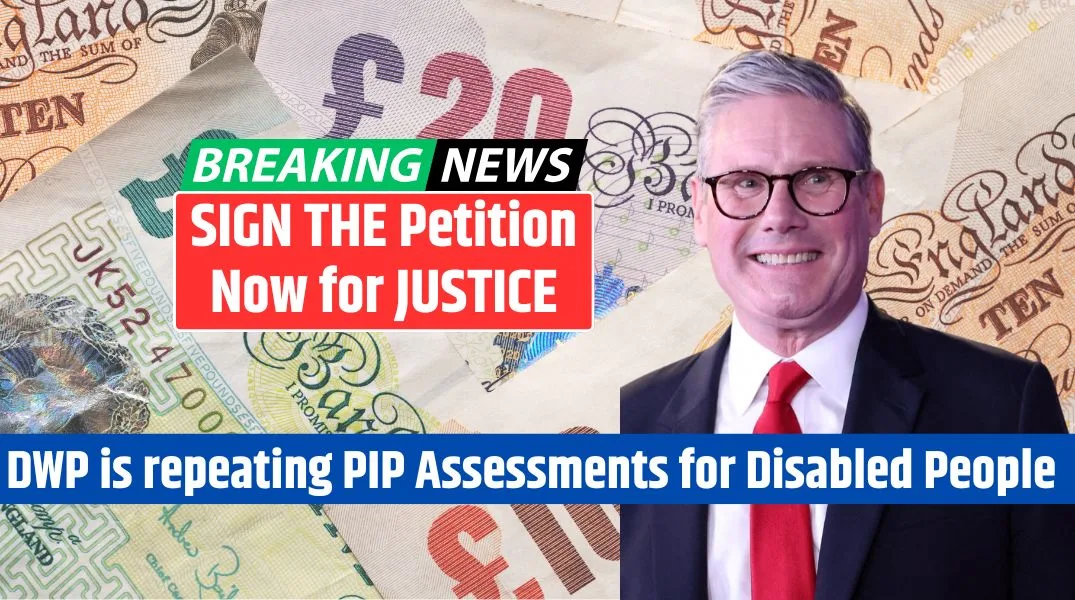An online petition is gaining momentum, urging the Department of Work and Pensions (DWP) to stop subjecting disabled people to repeated Personal Independence Payment (PIP) assessments. Spearheaded by Gary Robinson, the campaign argues that decisions to terminate or alter PIP awards should be based on medical evidence, not cost-saving measures.
So far, over 3,200 individuals have supported the petition on the UK Government’s petitions-parliament website, with more signatures pouring in daily. If the petition garners 10,000 signatures, the UK Government will issue a written response. At 100,000 signatures, the matter could be debated in Parliament by the Petitions Committee.
Petition Highlights
The petition outlines the distress caused by repeated PIP assessments, stating:
- “Stop DWP repeating Personal Independence Payments assessments for disabled people. Disabled people need support and respect. Repeated investigations are dehumanising, and interrogation-like interviews and legal battles to prove entitlements are distressing.”
It also raises concerns about the burden placed on claimants, who are often required to repeatedly submit doctors’ notes, medical letters, and prescription information to maintain their entitlements—sometimes at personal cost.
The petition adds:
- “A decision to end entitlement should be a medical decision, not a cost-saving exercise.”
Concerns Raised by MPs
The issue has drawn attention from politicians, including Liberal Democrat MP Ian Roome, who questioned the DWP about reassessments for individuals with incurable disabilities and terminal illnesses.
Roome highlighted the case of a constituent who is blind, deaf-blind registered, and unable to use a phone or complete forms but is still repeatedly subjected to reassessment.
Labour MP Debbie Abrahams, chairwoman of the Work and Pensions Committee, echoed these concerns, pointing out that many claimants feel humiliated by the PIP process. Abrahams shared an example of a blind woman with additional complex needs who had her assessment over the phone but was then sent a letter confirming her outcome—a process she found inaccessible.
Abrahams added:
- “Over half of the people surveyed by Sense, a disability charity, felt humiliated by the PIP process.”
DWP’s Response
In response to concerns, Sir Stephen Timms, Minister for Social Security and Disabilities, defended the necessity of PIP reviews, stating that they ensure claimants receive the correct level of financial support. Timms emphasized that awards can both increase and decrease and noted that the DWP is trialling an online process to improve accessibility and efficiency.
Timms also acknowledged the importance of making the process more inclusive, particularly for individuals with sight impairments or other disabilities.
The Current PIP Assessment Process
The PIP assessment is designed to evaluate how a claimant’s condition affects their daily life, rather than being a diagnosis or medical examination. Here’s how the process works:
- A health professional conducts the assessment (via telephone, video, or face-to-face).
- They prepare a report based on the evidence and send it to a DWP decision-maker.
- The decision-maker uses this report to determine whether PIP should be awarded or adjusted.
Claimants are encouraged to have a copy of their PIP evidence form on hand during assessments, especially if the form was completed several years ago.
The Call for Change
The growing support for this petition reflects widespread frustration with the current PIP system. Disabled individuals and advocacy groups argue that repeated assessments are not only unnecessary for conditions that will not improve but also deeply stressful and dehumanising.
The petition highlights the urgent need for reforms that prioritize the dignity and well-being of claimants, including:
- Relying on medical evidence to determine entitlements.
- Reducing unnecessary reassessments, particularly for those with incurable or terminal conditions.
- Ensuring the process is accessible and respectful for all.
As Gary Robinson, the petition’s creator, puts it:
- “Disabled people need support and respect, not repeated investigations that add to their distress.”
Source: Link
FAQ’s
What is the ‘Stop Repeating PIP Assessments’ petition about?
The petition calls on the DWP to stop repeated PIP assessments for disabled people, arguing that decisions should be based on medical evidence and not cost-saving measures.
Why are repeated PIP assessments controversial?
Repeated assessments are viewed as dehumanising and stressful for disabled people, especially those with incurable or terminal conditions, who must repeatedly prove their eligibility.
What changes are being proposed to the PIP assessment process?
The petition proposes ending unnecessary reassessments, especially for those with permanent or worsening conditions, and relying on medical evidence for decisions.
What has the DWP said about PIP assessments?
The DWP defends PIP reviews as necessary to ensure claimants receive the correct support. They are trialling an online process to improve accessibility.
How can I support the petition to stop repeated PIP assessments?
You can support the petition by signing it on the UK Government’s petitions-parliament website. Reaching 10,000 signatures guarantees a government response.











